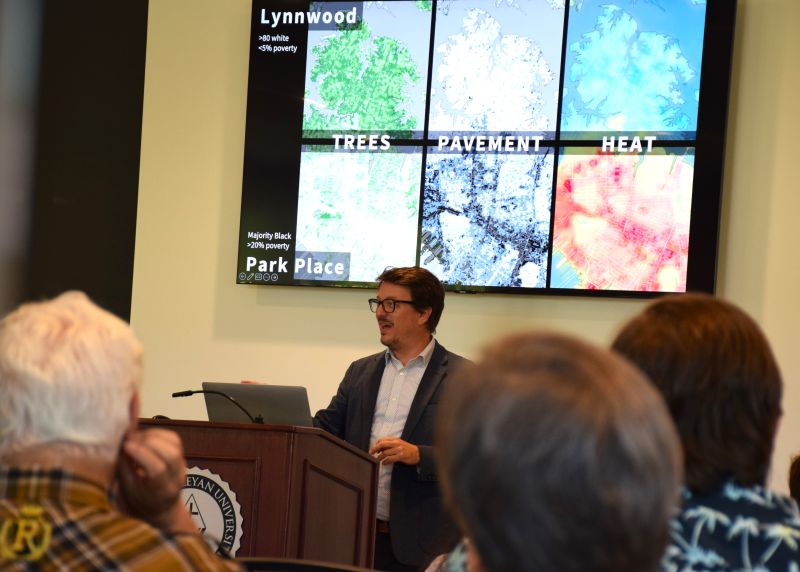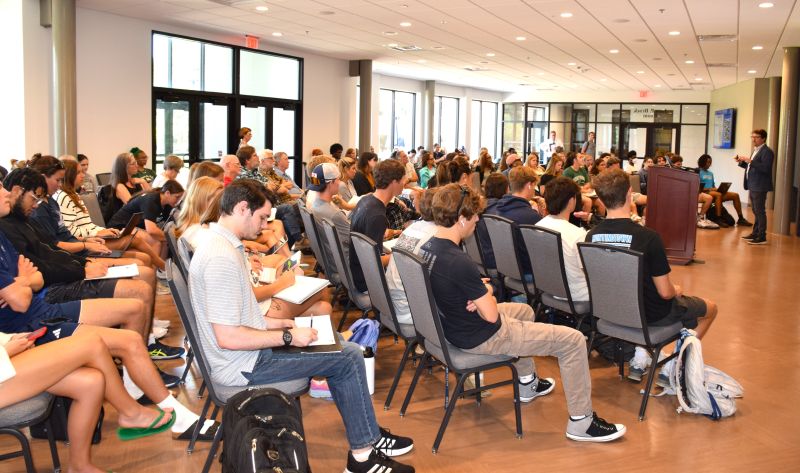Share this Story
Cookson Lecture Explores How Racist Policies Poison Communities
Dr. Johnny Finn examines the geography of inequality during Robert Nusbaum Center event
University News | September 26, 2025

Finn, an urban geographer and Chair of the Department of Sociology, Social Work, and Anthropology at CNU, framed the issue with stark questions such as: “What if the air you breathe, the heat radiating from cracked asphalt, and the highway bisecting your neighborhood weren’t accidents—but consequences of intentional policy?”
Drawing on his pioneering research in Geographic Information Systems (GIS), Finn demonstrated how discriminatory policies from decades past continue to poison communities today. Through maps, data, and vivid examples, he showed how marginalized neighborhoods in Coastal Virginia bear disproportionate environmental burdens, from air and noise pollution to higher rates of chronic illness and shortened lifespans.
“The presence of highways was intentionally sited throughout history in Black communities,” Finn explained. “Those communities continue to suffer the environmental costs, including air pollution and noise pollution.”
His lecture highlighted how structural racism embeds itself in physical spaces—literally reshaping neighborhoods and influencing health outcomes. The enduring impacts of redlining, segregation, and urban planning decisions, Finn argued, make inequality visible not just in statistics but in the streets and skylines around us.
“Thinking about how social, environmental, and health inequalities drives my work,” he noted. “We achieve environmental justice when all people enjoy equal access and equal protection from environmental risks and hazards. No one group should get more or less.”

Beyond his scholarship, Finn is a Community-Engaged Learning Facilitator for Eastern Virginia Medical School and the author of more than 40 articles, book chapters, reports, and op-eds. His work continues to connect the dots between local experiences and national patterns of inequality.
The Cookson Lecture, named for Catharine Cookson, Ph.D., J.D., the first director of the Robert Nusbaum Center (formerly the Center for the Study of Religious Freedom), honors her legacy of fostering dialogue on pressing social issues. This year’s lecture underscored how deeply place and policy shape human lives—and how understanding the geography of injustice is essential to envisioning a more equitable future.
Learn more about the Fall 2025 Schedule of Events at the Robert Nusbaum Center.

